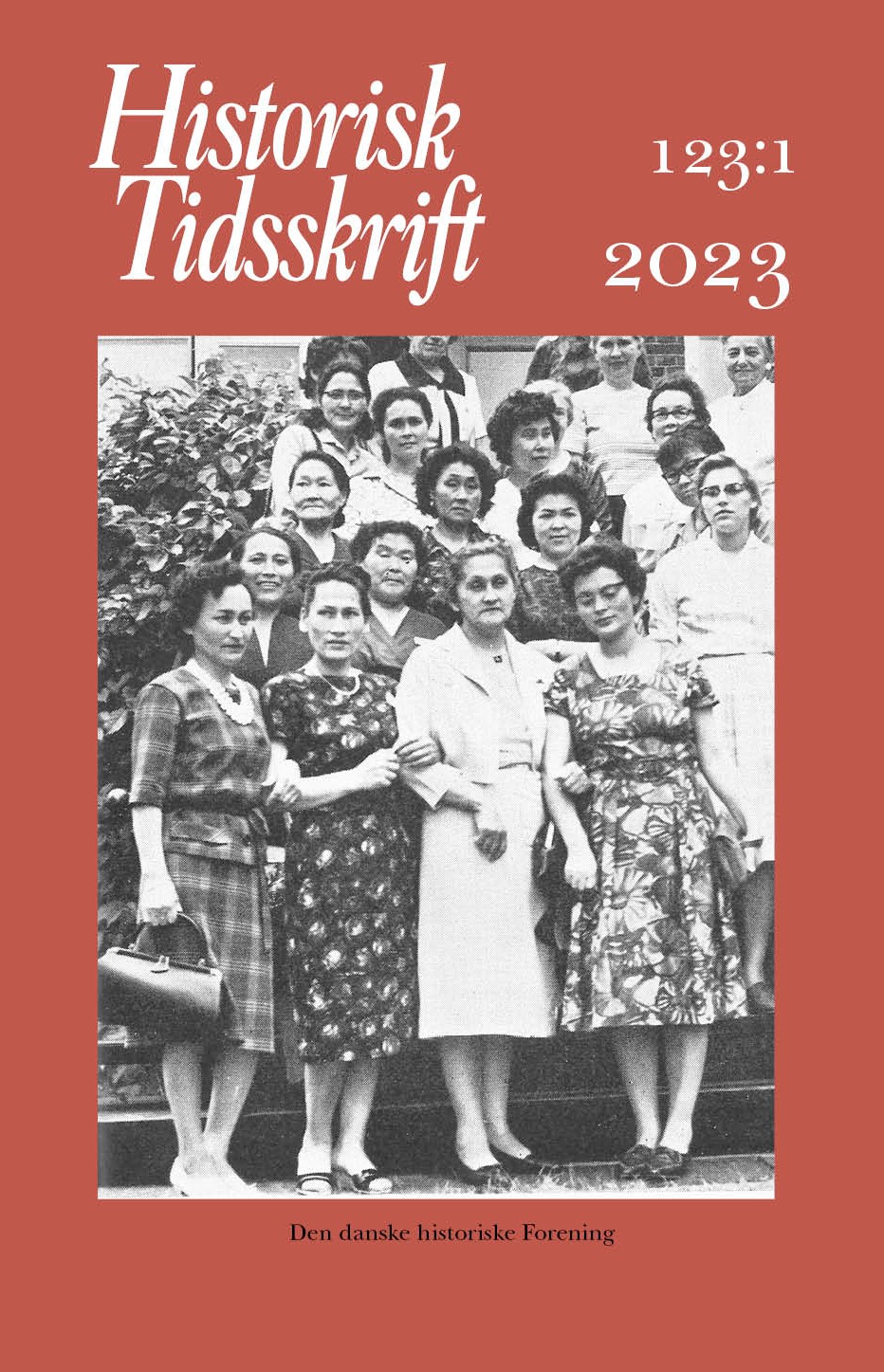Værftsansatte som erindringsarbejdere. Oral history i faglig udveksling med historiebrug
DOI:
https://doi.org/10.7146/ht.v123i1.138933Resumé
Shipyard employees as memory workers: Oral history and ‘uses of past’
This article explores the memory work of two former shipyard employees (a female office worker employed 1974-1986 in Nakskov Shipyard and a male toolmaker employed 1961-1983 in Elsinore Shipyard) and how they relate to public history narratives of the decline of the once proud Danish shipyard industry. Drawing on Anglophone oral history theory as well as on Danish theories of ‘uses of pasts’ (historiebrug), it is argued that publicly articulated memories are part of individual memory work and vice versa because people recognize themselves in larger histories and strive to make their own memory work meaningful. Oral history is therefore not only about retrieving information about the past through personal memories but also about memory processes broadly conceived. Individual recollections may have an impact on what is remembered collectively.
Especially in centers of naval construction public memory has focused on the shipyards as great and important industries that employed many people from several occupational groups and defined the economic as well as the urban space of the city. The decline and shutting down of shipyards in the 1980s and onwards is therefore remembered as something that greatly affected not only the employees but the entire urban environment. This public memory is expressed in monuments, archives and museums, documentaries, and popular history books. Overall, this narrative of bloom and withering makes sense to the two interviewees. When elements from a mnemonic sequence make sense for them, a detailed and quite personal memory work is put in motion, and they contribute new information on the topic. If it makes less sense, they have much less to say or express other nuances about the elements in the public memories. However, they do not express resistance. Thus, the article concludes that the two memory workers neither act as simple mouthpieces for public memories nor do they express any conscious counter memories. They see themselves as having a share in industrial history and offer information about their experience. Finally, the article calls for reflection on how memory processes affect information about pasts in oral history interviews and other types of source material created retrospectively.
Downloads
Publiceret
Citation/Eksport
Nummer
Sektion
Licens
Ophavsret til bidrag i Historisk Tidsskrift tilhører forfatterne og Den danske historiske Forening som udgiver af Historisk Tidsskrift. For illustrationer gælder den ophavsret, som står anført i billedteksten. Ophavsretslovens almindelige bestemmelser gælder, hvilket vil sige, at ophavsretten gælder i 70 år efter forfatterens død. Bidrag i Historisk Tidsskrift må derfor, med forbehold for en ”moving wall” på tre år, frit downloades, læses, gemmes, anvendes og citeres (med kildeangivelse) i privat og videnskabelig sammenhæng, men de må ikke helt eller delvis genudgives af tredjepart, heller ikke i redigeret form, uden tilladelse fra forfatterne og Den danske historiske Forening. Henvendelse skal i så fald rettes til Historisk Tidsskrifts redaktion på histtid@hum.ku.dk.





